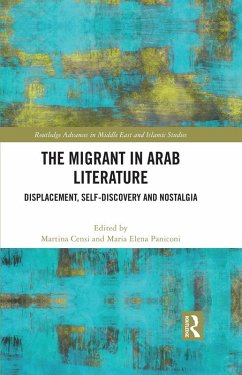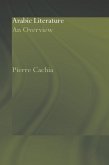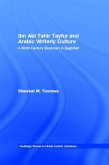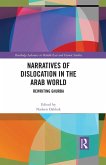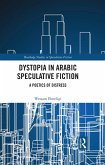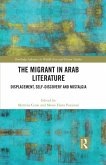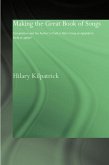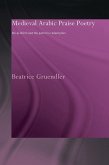The Migrant in Arab Literature (eBook, PDF)
Displacement, Self-Discovery and Nostalgia
Redaktion: Censi, Martina; Paniconi, Maria Elena
42,95 €
42,95 €
inkl. MwSt.
Sofort per Download lieferbar

21 °P sammeln
42,95 €
Als Download kaufen

42,95 €
inkl. MwSt.
Sofort per Download lieferbar

21 °P sammeln
Jetzt verschenken
Alle Infos zum eBook verschenken
42,95 €
inkl. MwSt.
Sofort per Download lieferbar
Alle Infos zum eBook verschenken

21 °P sammeln
The Migrant in Arab Literature (eBook, PDF)
Displacement, Self-Discovery and Nostalgia
Redaktion: Censi, Martina; Paniconi, Maria Elena
- Format: PDF
- Merkliste
- Auf die Merkliste
- Bewerten Bewerten
- Teilen
- Produkt teilen
- Produkterinnerung
- Produkterinnerung

Bitte loggen Sie sich zunächst in Ihr Kundenkonto ein oder registrieren Sie sich bei
bücher.de, um das eBook-Abo tolino select nutzen zu können.
Hier können Sie sich einloggen
Hier können Sie sich einloggen
Sie sind bereits eingeloggt. Klicken Sie auf 2. tolino select Abo, um fortzufahren.

Bitte loggen Sie sich zunächst in Ihr Kundenkonto ein oder registrieren Sie sich bei bücher.de, um das eBook-Abo tolino select nutzen zu können.
This edited book offers a collection of fresh and critical chapters that explore the representation of the migrant subject in modern and contemporary Arabic literature and discuss its role in shaping new forms of transcultural and transnational identities.
- Geräte: PC
- ohne Kopierschutz
- eBook Hilfe
- Größe: 15.68MB
Andere Kunden interessierten sich auch für
![Arabic Literature (eBook, PDF) Arabic Literature (eBook, PDF)]() Pierre CachiaArabic Literature (eBook, PDF)46,95 €
Pierre CachiaArabic Literature (eBook, PDF)46,95 €![Ibn Abi Tahir Tayfur and Arabic Writerly Culture (eBook, PDF) Ibn Abi Tahir Tayfur and Arabic Writerly Culture (eBook, PDF)]() Shawkat M. ToorawaIbn Abi Tahir Tayfur and Arabic Writerly Culture (eBook, PDF)56,95 €
Shawkat M. ToorawaIbn Abi Tahir Tayfur and Arabic Writerly Culture (eBook, PDF)56,95 €![Narratives of Dislocation in the Arab World (eBook, PDF) Narratives of Dislocation in the Arab World (eBook, PDF)]() Narratives of Dislocation in the Arab World (eBook, PDF)42,95 €
Narratives of Dislocation in the Arab World (eBook, PDF)42,95 €![Dystopia in Arabic Speculative Fiction (eBook, PDF) Dystopia in Arabic Speculative Fiction (eBook, PDF)]() Wessam ElmeligiDystopia in Arabic Speculative Fiction (eBook, PDF)42,95 €
Wessam ElmeligiDystopia in Arabic Speculative Fiction (eBook, PDF)42,95 €![The Migrant in Arab Literature (eBook, ePUB) The Migrant in Arab Literature (eBook, ePUB)]() The Migrant in Arab Literature (eBook, ePUB)42,95 €
The Migrant in Arab Literature (eBook, ePUB)42,95 €![Making the Great Book of Songs (eBook, PDF) Making the Great Book of Songs (eBook, PDF)]() Hilary KilpatrickMaking the Great Book of Songs (eBook, PDF)57,95 €
Hilary KilpatrickMaking the Great Book of Songs (eBook, PDF)57,95 €![Medieval Arabic Praise Poetry (eBook, PDF) Medieval Arabic Praise Poetry (eBook, PDF)]() Beatrice GruendlerMedieval Arabic Praise Poetry (eBook, PDF)56,95 €
Beatrice GruendlerMedieval Arabic Praise Poetry (eBook, PDF)56,95 €-
-
-
This edited book offers a collection of fresh and critical chapters that explore the representation of the migrant subject in modern and contemporary Arabic literature and discuss its role in shaping new forms of transcultural and transnational identities.
Dieser Download kann aus rechtlichen Gründen nur mit Rechnungsadresse in A, B, BG, CY, CZ, D, DK, EW, E, FIN, F, GR, HR, H, IRL, I, LT, L, LR, M, NL, PL, P, R, S, SLO, SK ausgeliefert werden.
Produktdetails
- Produktdetails
- Verlag: Taylor & Francis eBooks
- Seitenzahl: 206
- Erscheinungstermin: 20. Dezember 2022
- Englisch
- ISBN-13: 9780429651281
- Artikelnr.: 66340923
- Verlag: Taylor & Francis eBooks
- Seitenzahl: 206
- Erscheinungstermin: 20. Dezember 2022
- Englisch
- ISBN-13: 9780429651281
- Artikelnr.: 66340923
- Herstellerkennzeichnung Die Herstellerinformationen sind derzeit nicht verfügbar.
Martina Censi is Assistant Professor of Arabic Language and Literature at the University of Bergamo (Italy). She is a member of the Équipe de Recherche Interlangue (ERIMIT) at the University of Rennes 2 (France). In her research, she deals with literary representations of the body, processes of the construction of masculinity and femininity, and migration with a special focus on contemporary Arabic novel. She has published the book Le Corps dans le roman des écrivaines syriennes contemporaines: Dire, écrire, inscrire la différence (2016) and other articles about modern and contemporary Arabic literature. Maria Elena Paniconi is Associate Professor of Arabic Literature at the University of Macerata. She is interested in the rise of the Arab novel and in the dialectics among literary genres during the Arab Nah¿a. She has written articles and essays in the Journal of Arabic Literature and Oriente Moderno on nah¿aw¿ authors and co-edited with Jolanda Guardi the special issue of Oriente Moderno, "Nah¿a Narratives". She wrote the entries on ¿¿h¿ ¿usayn and Müammad ¿usayn Haykal for the third edition of the Encyclopedia of Islam. Her book Bildungsroman and the Arab Novel: Egyptian Intersections (Routledge 2023) explores a corpus of Egyptian canonical novels featuring young protagonists in their path toward adulthood, through the lens of international Bildungsroman.
Introduction (Martina Censi) 1. Migrating to and in Europe beyond the Nah
aw
and Modernist Paradigm: Mudun bi-l
nakh
l by
riq al-
ayyib and Taytanik
t Ifriqiyya by Ab
Bakr Kh
l as Novels of Forced Migration (Maria Elena Paniconi) 2. Transcultural Identities in two Novels by
an
n al-Shaykh (Martina Censi) 3. The Body and the Migrating Subject in the Gulf: Daqq al-
ab
l by Mu
ammad al-Bis
(Cristina Dozio) 4. Writing Arabic in the Land of Migration: Waciny Laredj from
risat al-
il
l: D
n K
sh
t f
al-
az
'ir to Shuraf
t bär al-sham
l: Am
r Amstird
m (Jolanda Guardi) 5. Resistant Assimilation and Hometactics as Decolonial Practices: The Stories of Leilah and Ibrahim in The Orange Trees of Baghdad (Shima Shahbazi) 6. The Negotiation of Identity in Laila Halaby's Once in a Promised Land and West of Jordan (Sara Arami) 7. "Smotherland" Speaks: Syrian Refugee Identity in the Spaces between Media and Literature (Roula Salam) 8. The Global Migration Context and the Contemporary Iraqi Novel (Ikram Masmoudi) 9. Epilogue (Maria Elena Paniconi)
aw
and Modernist Paradigm: Mudun bi-l
nakh
l by
riq al-
ayyib and Taytanik
t Ifriqiyya by Ab
Bakr Kh
l as Novels of Forced Migration (Maria Elena Paniconi) 2. Transcultural Identities in two Novels by
an
n al-Shaykh (Martina Censi) 3. The Body and the Migrating Subject in the Gulf: Daqq al-
ab
l by Mu
ammad al-Bis
(Cristina Dozio) 4. Writing Arabic in the Land of Migration: Waciny Laredj from
risat al-
il
l: D
n K
sh
t f
al-
az
'ir to Shuraf
t bär al-sham
l: Am
r Amstird
m (Jolanda Guardi) 5. Resistant Assimilation and Hometactics as Decolonial Practices: The Stories of Leilah and Ibrahim in The Orange Trees of Baghdad (Shima Shahbazi) 6. The Negotiation of Identity in Laila Halaby's Once in a Promised Land and West of Jordan (Sara Arami) 7. "Smotherland" Speaks: Syrian Refugee Identity in the Spaces between Media and Literature (Roula Salam) 8. The Global Migration Context and the Contemporary Iraqi Novel (Ikram Masmoudi) 9. Epilogue (Maria Elena Paniconi)
Introduction (Martina Censi) 1. Migrating to and in Europe beyond the Nah
aw
and Modernist Paradigm: Mudun bi-l
nakh
l by
riq al-
ayyib and Taytanik
t Ifriqiyya by Ab
Bakr Kh
l as Novels of Forced Migration (Maria Elena Paniconi) 2. Transcultural Identities in two Novels by
an
n al-Shaykh (Martina Censi) 3. The Body and the Migrating Subject in the Gulf: Daqq al-
ab
l by Mu
ammad al-Bis
(Cristina Dozio) 4. Writing Arabic in the Land of Migration: Waciny Laredj from
risat al-
il
l: D
n K
sh
t f
al-
az
'ir to Shuraf
t bär al-sham
l: Am
r Amstird
m (Jolanda Guardi) 5. Resistant Assimilation and Hometactics as Decolonial Practices: The Stories of Leilah and Ibrahim in The Orange Trees of Baghdad (Shima Shahbazi) 6. The Negotiation of Identity in Laila Halaby's Once in a Promised Land and West of Jordan (Sara Arami) 7. "Smotherland" Speaks: Syrian Refugee Identity in the Spaces between Media and Literature (Roula Salam) 8. The Global Migration Context and the Contemporary Iraqi Novel (Ikram Masmoudi) 9. Epilogue (Maria Elena Paniconi)
aw
and Modernist Paradigm: Mudun bi-l
nakh
l by
riq al-
ayyib and Taytanik
t Ifriqiyya by Ab
Bakr Kh
l as Novels of Forced Migration (Maria Elena Paniconi) 2. Transcultural Identities in two Novels by
an
n al-Shaykh (Martina Censi) 3. The Body and the Migrating Subject in the Gulf: Daqq al-
ab
l by Mu
ammad al-Bis
(Cristina Dozio) 4. Writing Arabic in the Land of Migration: Waciny Laredj from
risat al-
il
l: D
n K
sh
t f
al-
az
'ir to Shuraf
t bär al-sham
l: Am
r Amstird
m (Jolanda Guardi) 5. Resistant Assimilation and Hometactics as Decolonial Practices: The Stories of Leilah and Ibrahim in The Orange Trees of Baghdad (Shima Shahbazi) 6. The Negotiation of Identity in Laila Halaby's Once in a Promised Land and West of Jordan (Sara Arami) 7. "Smotherland" Speaks: Syrian Refugee Identity in the Spaces between Media and Literature (Roula Salam) 8. The Global Migration Context and the Contemporary Iraqi Novel (Ikram Masmoudi) 9. Epilogue (Maria Elena Paniconi)
